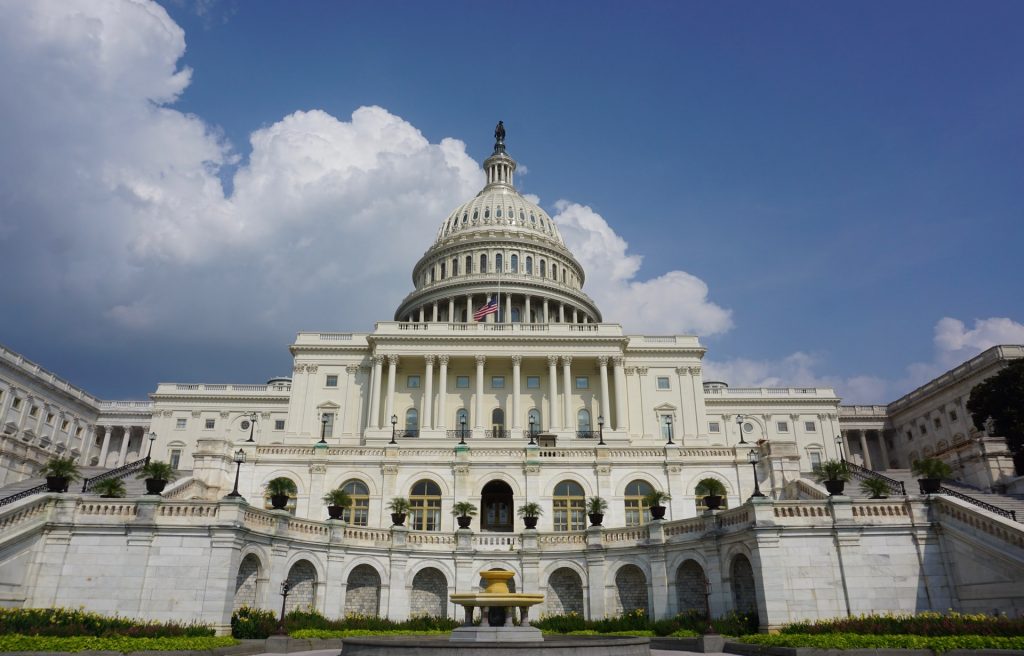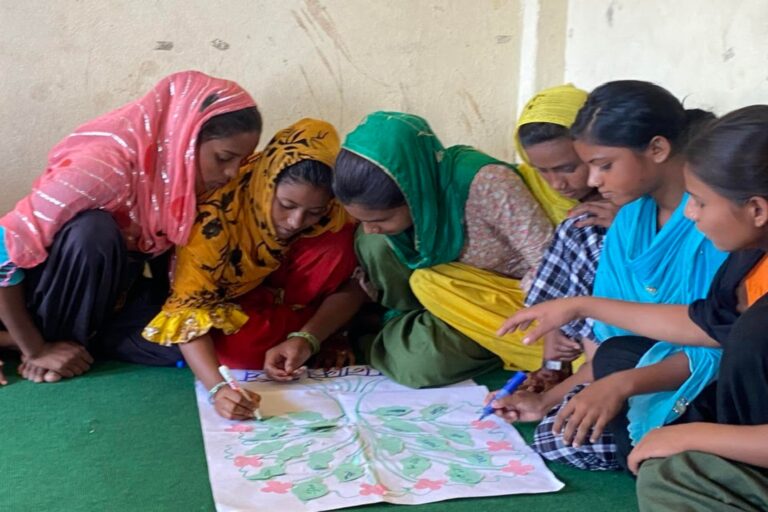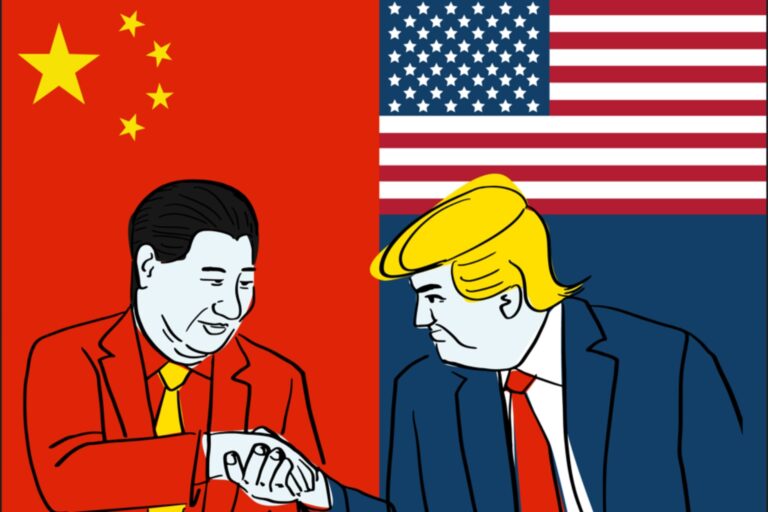Americans face a broad array of challenges at home and abroad. The physical, economic, and social effects of climate change; the dislocations caused by human migration; the health and economic consequences of pandemic and infectious disease; the impacts of globalization; and the increasing scarcity of natural resources, are a few of the most obvious. It’s broadly accepted that these challenges, and many others, are of a different nature than those of the past. Their effects have been, and increasingly will be, felt beyond national, regional and local borders. As a result, they’ll require broad domestic and foreign coalitions if they’re to be addressed successfully. The American people will be called upon to help build these coalitions. To do so, they’ll need to find common ground. Finding it may prove the greatest challenge of them all.
At home, the effort to find common ground is fraught due to partisan and cultural divides. Even when policies favored by a majority of the American people do emerge, they struggle to garner bipartisan Congressional support due to the architecture of electoral politics. Abroad, U.S. leadership is languishing, in large part because Americans don’t see foreign policy as relevant to their lives. This has led some practitioners to seek support at home for our efforts abroad by proposing a “foreign policy for the middle class” that is seen as being more responsive to the economic needs of the American people. Their focus, and the focus of domestic policy makers, has been on how Americans experience the world. But a more profitable question to ask is why Americans see the world as they do. The answer to this question requires an understanding of the current geography of American life. Where we live and how we interact has a profound impact on how we see one another, why we believe what we believe, and what it will take for us to act together. Unfortunately, Americans are interacting far less than they did in the past.
Let’s take as an example the U.S. economy, which is critical to the country’s domestic health and global leadership. The last election cycle exposed the contradictory and often unsubstantiated views Americans hold on this subject. Some are the result of confusion generated and exploited by politicians. Others accompany the erosion in the value and dignity American society attributes to certain kinds of work, and more importantly, to the people who perform it. Globalization, the declines in domestic manufacturing, increased automation, the diminished or discredited role of labor unions, the institutionalization of agriculture, and the enduring emphasis corporations place on their shareholders rather than all of the stakeholders who benefit or are harmed by their operations, all have played a part. The result has been increased income inequality, social stratification, and anger by those left behind. The economic, racial, and cultural divides that have been created threatens the conceptual foundations of the country.
Geography has a great deal to do with this situation. Those living in “fly over’ America, especially those in small towns and on farms, increasingly are invisible and, in the minds of some, irrelevant. Too many Americans no longer are invested in knowing or understanding others. Indeed, it could be said they’re not even invested in knowing themselves, which requires mediating one’s relationship with the world. Even when Americans of different backgrounds do come together, they don’t actually see one another or the economic contributions they make to their communities and the country. The resulting economic divides between and among us have become too wide and deep to be easily bridged. Heuristics, which are cognitive “short-cuts” based on beliefs as opposed to facts, are exacerbating the situation by substituting belief and bias for reason and analysis.
Ironically, the COVID-19 pandemic, which should have underscored our mutual dependence upon one another and brought us closer, has instead contributed to the challenge of finding common ground. A large number of Americans discovered they were able to work productively from home, as long as others who could not afford to shelter in place supported their ability to do so. The economic and class divide this has opened has created the ultimate privilege—a safe remove from the world without loss of income or the necessities of life. The pandemic all but eliminated even the modest interactions Americans experienced during their morning commutes and work days.
The same centrifugal forces affecting our country are occurring abroad. But unfortunately, the history and current geographic realities of America makes finding common ground a special challenge. We’ve long viewed the geography of American life in ways that separate us. Apart from moments of crisis, most memorably during wars started by other countries and responding to natural disasters, we’ve often lacked the perspective we need to actually see and engage one another. But in recent decades the problem has worsened, primarily because the current economy requires far less interaction among Americans than in the past, and the success of the few has enabled them to withdraw into their private worlds. The result has been that too many Americans lack the perspective on the lives of their fellow countrymen and women needed to empathize with them. As President Obama observed, “… we live in a culture that discourages empathy. A culture that too often tells us our principal goal in life is to be rich, thin, young, famous, safe, and entertained. A culture where those in power too often encourage these selfish impulses….”[1]
It’s empathy upon which finding common ground depends. Unfortunately, the architecture and expectations of American economic life are premised on its opposite—selfishness. James Madison, the principal draftsman of the U.S. Constitution, believed people will act habitually in their personal self-interest, unencumbered even by religion and morality. He and other drafters of the Federalist Papers stressed it was important to accept “human nature as it is, without either flattering its virtues, or exaggerating its vices.”[2] For this reason, they didn’t draft a Constitution designed to promote the common interest, but rather to balance the self-interest of competing parties. Their approach was an early expression of “rationalist choice theory”, which provides that the behavior of a society is the result of individual actors making personal, “rational” decisions following their analysis of what is in their own best interests. Of course, this goes beyond economics to include a wide range of social, religious and cultural issues.
This focus on the self is woven into the political, economic and social fabric of the Republic. The concept of “rational” self-interest is assumed in microeconomic models and analyses, and in a wide variety of fields that also assess human decision making, including political science, philosophy, sociology and psychology. Examples abound. Economist James M. Buchanan won the Nobel Prize in Economics for his argument that “rational” economic actors, such as the investing public and corporations, inevitably take into account the personal costs and benefits of their actions in making decisions. But what is meant by “rational” in this context is important. It does not mean reasoned, fact based, or even thoughtful. Nor does it mean long term. Rather, it refers to actions that are goal oriented, consistent, focused on the present, and evaluative based on the information available.
This pursuit of “rational” self-interest threatens to undermine Americans’ efforts to find common ground. The narrowness of Americans’ perspective has been a major factor in leading the country into its current, troubled economic landscape. Globalization and urbanization have advantaged many but alienated more, and has shifted economic activity away from many American communities, especially in the manufacturing sector. In evaluating their “rational” self-interest, some Americans now have less and less reason to interact with their fellow Americans. As a result, they undervalue what others provide to the country. Those left behind can feel invisible, causing them to retreat further into their tribes and cultures in an effort to find comfort and protection.
“Rational” self-interest, when combined with the economic changes in the country and the world, has altered the geographic reality of American life. Americans no longer have the perspective they need to see and understand one another. The result is a lack of empathy for others. And without empathy, common ground is impossible to find. This empathic deficit has been made worse by the failure of our leaders and the media to promote and pursue a substantive political dialogue based on mutual respect. They all too often have focused on the issues that divide us.
The antidote to this situation is for leaders to promote policies that enhance interactions among Americans. These policies need to focus on creating a new American geography designed to bridge the divides that have emerged among us.
How to design this new geography is informed by the work of Leon Battista Alberti, whose study of perspective in 1435 focused on the relationship between geography and empathy. He understood that perspective, which is a consequence of geography, allows viewers to enter into spaces beyond themselves. Alberti recognized being in a different physical space makes it possible to be empathic. Later the concept of empathy evolved to encompass the ability to feel what others feel and mirror their emotional states. This expanded definition is a translation of the German Einfühlung, meaning “feeling into.” Alberti’s work underscores that the emotional congruence that results from being empathic is the direct result of geography because it allows us to put ourselves into the place of others. Doing so creates the cognitive congruence that’s needed when people cooperate on political and economic matters on a community, national, or international level.
While the emotional definition of empathy is more commonly used today, the term retains the geographic aspect Alberti identified. Entering actual, physical worlds beyond oneself remains a prerequisite for seeing things in a new way and being more empathic. This process is essential if Americans are to move beyond “rational self-interest” and find common ground. It mandates that domestic and foreign policy makers should adopt policies that make it more possible for Americans to “enter into” unfamiliar landscapes. Only then will they be able to design and pursue the sustainable policies upon which our democratic republic depends. For this reason, pulling people into new geographies should be a stated policy goal in and of itself. Such physical interactions would help build the confidence and connections necessary for people to do big things together by defining self-interest in ways that take the commons more fully into account. They would, quite literally, re-connect us.
What would policies and programs to bring Americans together look like? Domestic examples include infrastructure projects such as high-speed rail and rail trails that connect communities, especially those in economically depressed areas; requiring corporations to connect more closely with and serve the communities where they are located, and to be more responsible to all stakeholders affected by their operations; investments in expanded recreational venues and programs, including parks and forests, where people can interact; enhanced support for colleges and universities that “invert themselves” by including in their admissions criteria, and in their on campus and off campus programing, closer interactions with the communities, states and regions in which they’re located; a program of paid, mandatory national public service; an expansion of youth volunteer programs and sports activities that go beyond the borders of local communities; summer employment programs for students to perform public works projects; outreach through the arts, such as with traveling repertory companies; a national trail for bicyclists with accommodations en route; and a 21st century Works Progress Administration. Global examples include revitalizing and expanding the Peace Corps; supporting educational, artistic and cultural exchange programs with a focus on creating multilateral cohorts; expanding scholarships and loan programs to encourage enrollment by foreign students in U.S. colleges and universities; and revitalizing and expanding The Sister Cities program to include more robust cultural and social interactions.
Many will continue to believe government shouldn’t be involved in the ways I’ve suggested, that the country has done well by relying on the “rational” choices made by its citizens and residents. Some will exalt the idea that Americans have an ineffable right to decide what is in their “rational” self-interest without government involvement or interference, and should not be expected to take a broader perspective. These arguments are based on the notion that the geography of peoples’ lives is, or should be, inherently personal. But they fail to recognize the geography of our challenges has changed, and with it, so too the geography of our lives. Americans’ uninhibited pursuit of personal, short-term economic goals is threatening to make it impossible to fashion effective domestic and foreign policies based on the interrelated realities of the country and the world. These realities will require Americans to find common ground. Policies and programs designed to encourage us to enter into one another’s worlds would give us the best chance to do so.
[1] Barack Obama, “Commencement Address” (speech, Northwestern University, Chicago, IL, June 16, 2006).
[2] Alexander Hamilton, Federalist No.76, in The Federalist Papers.




